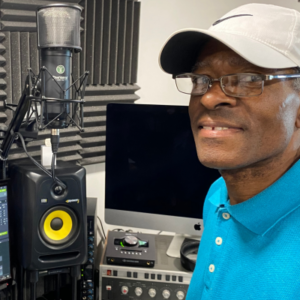First published – July 3, 2020
A significant event occurred in the “Windy City” that will shape popular culture on an international level for decades to come! The late Don Cornelius, Chicago-born on 27th September 1936 and originally from the South side of the city, died at his home in Sherman Oaks in the state of California on the 1st February 2012 of an apparent self-inflicted gunshot wound to the head. Many people knew Cornelius through a television show featuring local performers who lived mainly in Chicago. The television programme was called Soul Train by its founder and creator Don Cornelius, aired in syndication during the 1970’s.
The show primarily featured performances by R&B, Soul and Hip Hop artists, although funk, jazz, disco and gospel artists have also appeared during its 35 year history. Before going into television, Cornelius had started out in the insurance industry. To fulfil his dream, Cornelius enrolled into broadcasting school in 1966. During this period he worked as a substitute radio DJ and on a television show called “A Black’s View of the News”. While he was employed at the broadcasting station, he thought about an idea for a music television programme aimed at young African Americans. After several meetings with the owner of the broadcasting company, Cornelius decided to invest $400 of his own money into the business project.
In the process, Cornelius created a pilot for Soul Train, which was named after a promotional event he put together in 1969. Inspired by American Bandstand, the show featured teenagers dancing to the latest soul and R&B music, as well as a performance by a musical guest. “Almost all of what I learned about mounting and hosting a dance show, I learned from Dick Clark”, Cornelius later told Advertising Age. The show premiered on 17th August 1970 and quickly became a popular show for African Americans living in and around the city of Chicago. It aired on Saturday mornings, attracting a lot of children and teenagers. An early supporter, businessman George Johnson of the Johnson Products Company, provided funds to help the show became a national television programme. More corporate sponsorship came from Sears, Roebuck & Co, a major retailer with its national headquarters based in Chicago.
It was finally syndicated in 1971, but it was initially difficult getting stations to sign up for the show. In addition to Chicago, stations in Atlanta, Cleveland, Detroit, Houston, Los Angeles, Philadelphia and San Francisco were among the first to air Soul Train. Cornelius’ signature deep voice and distinguished good looks gave him a competitive edge over his rivals on other television networks, such as American Bandstand.
As writer, producer, and host of Soul Train, Cornelius was instrumental in offering wider exposure to black musicians such as James Brown, Aretha Franklin, and Michael Jackson, as well as creating opportunities for talented dancers that would presage subsequent television dance programmes. Cornelius said, “We had a show that kids gravitated to”. Spike Lee described the programme as an “urban music time capsule”. The show featured some dancers from the local community. Some of the black youngsters became local celebrities as a result of their brilliant dance routines that were seen all over America on national syndication. The first episode of the programme featured local artists such as Jerry Butler, the Chi-Lites, and the Emotions, as guests on the show. For a period of time Cornelius was assisted by Clinton Ghent, a local professional dancer who appeared on early episodes, before moving behind the scenes as a producer and secondary host. As the show progressed over the years, it was known as a fashion trend-setter with the latest fashion styles featured every week by the dancers and recording acts seen on the show. Soul Train was a creative outlet for black people to feature their musical expressions, fashion wear and accessories, with dynamic dance moves that influenced emerging and established artists from both sides of the Atlantic.
The show was so successful that it created new dances and helped new and emerging artists break nationally. Another key factor in the success of the show was the emergence of a successful black middle class, starting from the early 1970s and progressing into the 1990s, based in all the major markets where the show aired. It was broadcast until 2006.














